Death Note
Introduction
Is it possible to have too much of a good thing? 2008 has been the year of the Death Note, and it's a phenomenon that sees no sign of letting up anytime soon. I first noticed the multimedia frenzy in the UK when I caught a few volumes of the manga in my local library, just prior to the release of the anime by Manga Entertainment. Next month sees the release of the second Death Note live action film, a third film will come out later in the year, and along with the associated merchandising we surely must be reaching Death Note saturation. The last time I saw such an assault by a franchise was the Chronicles of Riddick, and we all know how that turned out. With the second Death Note film imminent, I thought it might be nice to take a look at the first one, released earlier this July by 4Digital Media. It is essentially the same story told for a third time however, and I hope that there is enough to distinguish it from the anime and the manga.
Light Yagami is a college student; actually he is an exemplary college student, fiercely intelligent, destined for a career in law, and looking to follow in his father's footsteps as a police detective. Yet he is jaded, disillusioned by the evidence that justice isn't all that effective, especially when it looks as if the legal system favours the criminals over their victims. On the day he follows a murder suspect that walked free from court, only to hear him boast to his friends of getting away with the crime, the Death Note 'accidentally' falls into his lap. Initially sceptical of a prank, or a sick joke, he's about to dismiss it from his mind, but curiosity urges him to pick it up and try it out. He stunned when it actually works. Soon he has a plan to clean up the criminal, the sick and depraved, and remove them from the world, crafting his ideal society, a society over which he will have the power of a god. When a Shinigami (Death God) named Ryuk appears, the one who dropped the notebook, it seems that his actions are pre-ordained. But for the authorities, murder is murder, and a sudden rash of unexplained deaths among criminals surely must be connected. Soon it is Light who is being hunted, ironically by his own father, who has been put in charge of the 'Kira' case. But a murderer, who kills by writing names down in a book, and by visualising faces, doesn't leave a lot of evidence. The Japanese National Police Agency soon call in master detective L to help track Kira down.
Note that this is one of those odd releases that turn up from time to time where the BBFC rating is a little misleading. The feature film in this set is rated 12 just like the anime, it's the extra features that bump it up to a 15.
Picture
Death Note gets a 1.85:1 anamorphic transfer and in a pleasant surprise, it's a native film to PAL transfer. The majority of films from East Asia have to make do with NTSC-PAL transfers that result in a lot of annoying artefacts on UK DVDs, and it's nice to actually see a film that is clear and sharp, smooth and free from motion blur and ghosting. It's a good transfer too, free from compression artefacts, and quite obviously free from print damage given its age.
The film itself makes a visual impact, some of the sets and locations work exceedingly well, and the story's pace and energy come across. There is a little dodgy CGI to be aware of, but surprisingly it's not Ryuk, whose CG incarnation rarely looks out of place. Besides, he's a Death God from the other side, if you can suspend your disbelief that much, then the rest isn't too much of a stretch.
Sound
You have a choice of DD 2.0 and DD 5.1 Japanese, with optional English subtitles. The dialogue is clear throughout, and the surround does a good job in conveying atmosphere and action. Kenji Kawai provides the music, and it does its job, but I felt it was lacking when compared to the gothic quirkiness of the anime soundtrack. The Red Hot Chili Peppers' Dani California over the end credits is an inspired choice though. Incidentally, the Region 1 disc has an English dub, which features the anime voiceover cast in a nifty bit of continuity.
Extras
Now the packaging is worth mentioning. The discs come in their own little Death Note. It's contained in a card slipcase with the cover image and disc details on, but the actual book is a black bound notebook, with a plastic holder inside which holds the discs (from the edges, no central hub here) overlapping on one side. The other side of the cover holds a 24-page booklet built into the binding. This has character and actor profiles, as well as notes on the making of the film, from the director and from the producers.
Disc 1
The RHCP tune also plays over the menu screen of the film, but all you will find in addition are the UK trailer, the Anime Trailer and a set of weblinks.
Disc 2
The menu on this disc is a more silent and static affair, which simply offers you the options in the Death Note font.
The Making Of Death Note is the most substantial at 50 minutes, and does what it says on the proverbial tin. It's a text narrated, behind the scenes look at the production with plenty of clips from the film, and interviews with the cast and crew as they earn their daily bread. It focuses most on Tatsuya Fujiwara (Light), but there are looks at the other actors and crewmembers. It doesn't have a lot to offer over countless other similar featurettes, but it's worth a watch.
The Video Production Diary lasts 6 minutes, and offers little snippets of the pre-production and production. Of interest here is that they did try Fujiwara with a wig that approximated the hair colour of the manga character. Fortunately they ditched it.
There is a 7½-minute press conference, where the cast of Death Note were presented to the world for the first time.
There are more trailers on this disc, this time the Japanese theatrical trailer, two teaser trailers and three TV spots for the film.
Finally there is a minute long slideshow gallery for the film.
Conclusion
Death Note is a fascinating premise. It's a study of absolute power corrupting absolutely, with Light Yagami given the power of death over whoever he sees deserving. It could easily be a good versus evil set up, if someone like a serial killer picked up the Death Note, but that would make for a short, action packed but ultimately dull movie. What happens though, when the Death Note falls in the hands of someone decent, moral and upright? What happens when someone like you or me gets the Death Note? Could you handle the responsibility, would your ethics cause you to shun the power, or would you be tempted to do some good with it? And how do you know who deserves to live and who should die? Murderers certainly, rapists, child abusers, terrorists, drug dealers and evil dictators… What about bank robbers? What about drink drivers? What about fraudsters, tax cheats, people who are late with their library books? Even if you know exactly where to draw the line, how do you deal with the people who try to stop you? After all, there are those who think all life, no matter how criminal, is sacrosanct, while others will just object to you having the power and not them. The moral and ethical 'what if' makes for a great debate over a pint at the pub, but it's even better on screen, and Death Note does a fine job in taking us into the minds of such people. The trouble is that it's done it twice already, in the manga and the anime. What can a third adaptation add that is new?
The Death Note film didn't start off well for me. The thing is that it is made for fans of the manga, just like the anime, and with that in mind, it all boils down to the faithfulness of the adaptation. The more faithful it is, the happier fans will be, but it's not so good if you're experiencing the same story for the third time in six months. It doesn't matter how good the performances are, how amazing Ryuk looks in 3D, and how much the story belongs in the 'real' world. If you see the same scene for the third time, identical in every respect to the anime and the manga, then your attention is liable to wander, to start looking for trivia in the film, little minutiae and oddities when you should be concentrating on the overall picture. I was desperate to find something different about the film, beyond the compression of the narrative down to 2 hours. Fortunately, there is a lot that is different about this film, enough in my opinion to actually elevate it above the material that it is adapted from.
The first thing is Light Yagami. In the anime and manga he's a pretty reprehensible character, a dislikeable genius antihero schoolboy who starts using the Death Note to craft his ideal world, for the sole reason that he is bored. If there is one drawback to the anime, it's the lack of sympathetic characters. But in the film, Light Yagami is a young law student in college, likeable, popular, approachable. Tatsuya Fujiwara (Battle Royale) plays him as much more human, fallible even. The result is that it's a complex journey he takes, one that we can begin to sympathise with. After all, given his position as a law student, and son of a top policeman, he knows full well that the justice system is flawed, has personal experience of criminals flouting the law, and it's much more understandable when he begins creating his ideal society using the Death Note.
Another difference is the girlfriend, Shiori. A new character for the film, she serves as Light's conscience, his humanity, the person that keeps him grounded as his views on justice and righteousness become more extreme. She's also the added motivation for his actions; after all, he wants a world where Shiori can be safe. Of course the added effects of a more noble purpose and a girlfriend makes his ultimate direction with the Death Note all the more monstrous, but it's a far more interesting journey to see a noble man fall to darkness than it is to see an annoying teen become even more so (think Anakin Skywalker).
While there are character differences, the events of the film play out in much the same way as the manga, and the familiarity of some scenes is striking. The cat and mouse that develops between Light and the police investigation, the arrival of the FBI in Japan and the way Light deals with them, the unmasking of one of the agents on a bus and the following events on a train, are all pretty much word for word from the manga. There are odd changes, an absolutely chilling scene in a prison as a wing full of hard timers all drop dead, the earlier introduction of fan favourite Misa Amane, and a different character development for her, but in a way the similarities are comforting.
In every respect, the most striking similarity is L, the genius detective who pits his wits against Light. A neurotic sugar addict, he's brought to life by Kenichi Matsuyama, who literally embodies the manga character, tousled hair, dark insomniac eyes, and a tendency to perch on the edge of a chair like some sort of demented raven. He even has the same characteristic of holding thing at a distance by his fingertips, the way he holds a telephone is identical to the manga. Yet with all this, he takes an utterly comic book character, embodies every bizarre trait, yet makes him totally believable in the real world. It takes an hour for L to make his screen debut, but when he does, the film comes alive, as the psychological mind games between him and Light intensify.
Still, despite all the differences in the film that keep you paying attention, all the faithful similarities to the manga that any right-minded Death Note fan would demand, it isn't until the climax of the film that it establishes its own tone and direction, and distances itself from its predecessors as a creative work in its own right, rather than a live action rehash. The film takes us to around halfway through the first arc of the manga; a point where having confronted the FBI in Japan, Light faces the vengeance of an agent's fiancée. It's a one on one confrontation in the manga, but it's completely different in the movie, a tense standoff that brings in all the major characters and culminates in L and Light's first face-to-face meeting. It's a suitable conclusion to the film, and dare I say it, even better than the manga. The film leaves us on a high note, eager for more.
And more isn't long in coming. Both this and its sequel, The Last Name were filmed back to back, and with this film making some key changes to the story, with the end completely divergent, it looks as if its sequel won't be so reliant on the manga, and will hopefully go in a completely unexpected direction. Look out for Death Note: The Last Name on October 13th 2008.
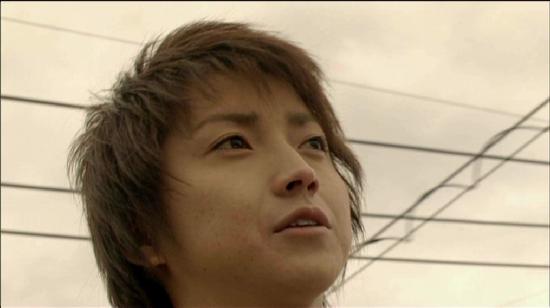
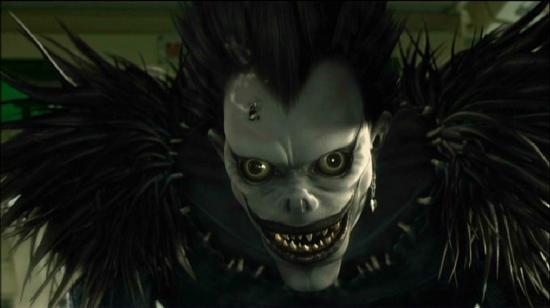
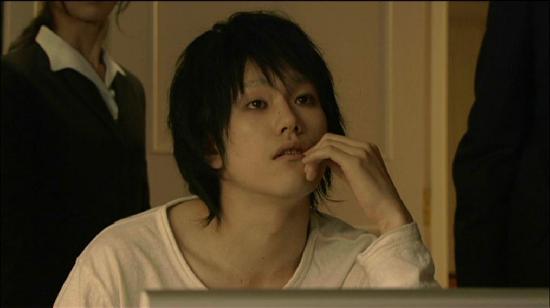
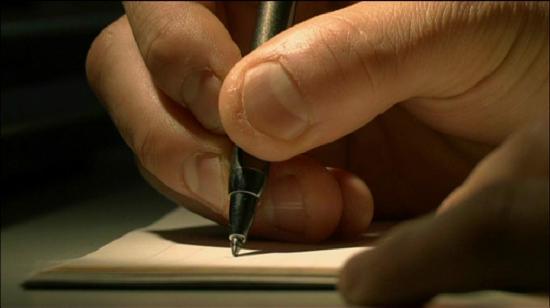
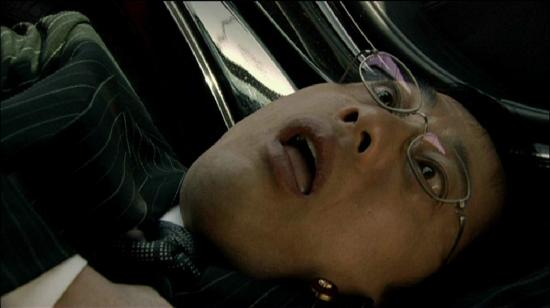
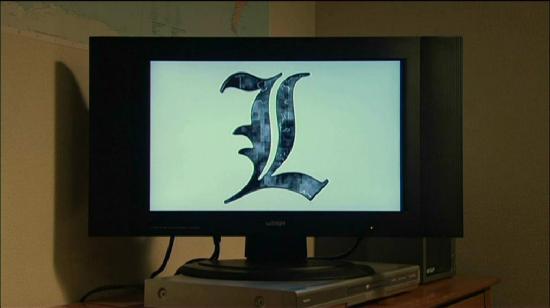
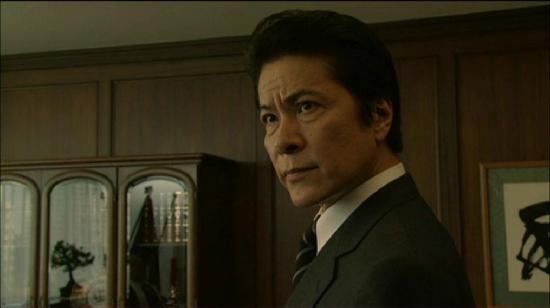
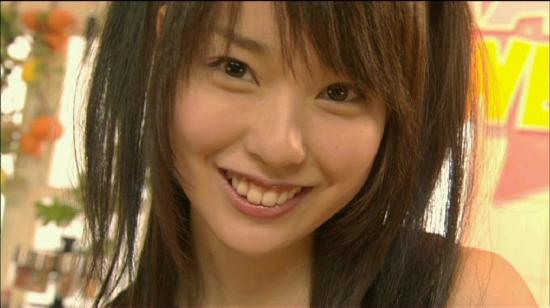
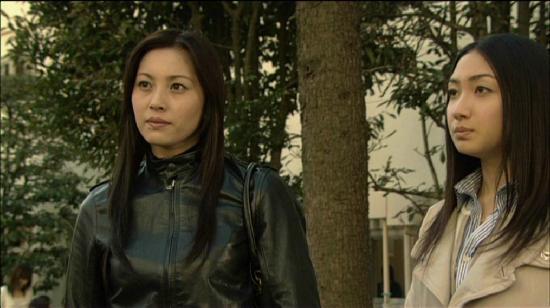
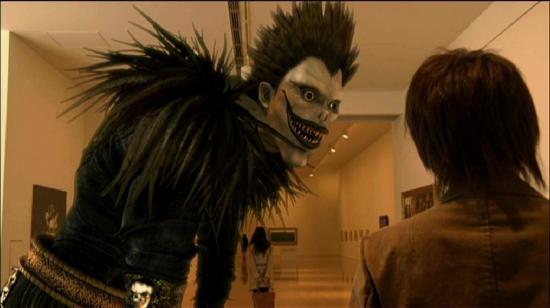
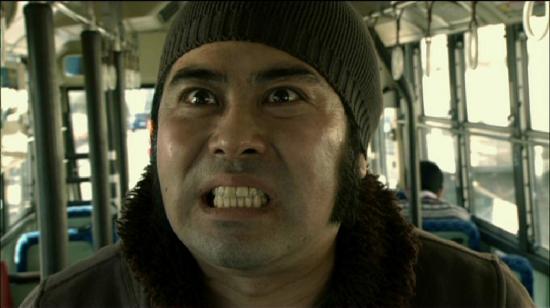
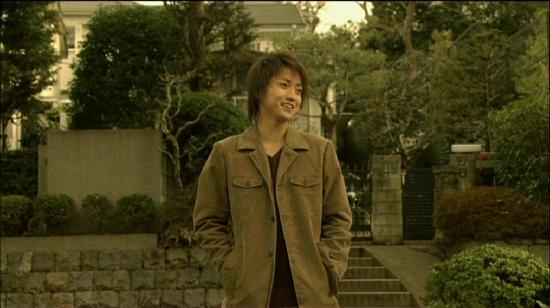
Your Opinions and Comments
Be the first to post a comment!